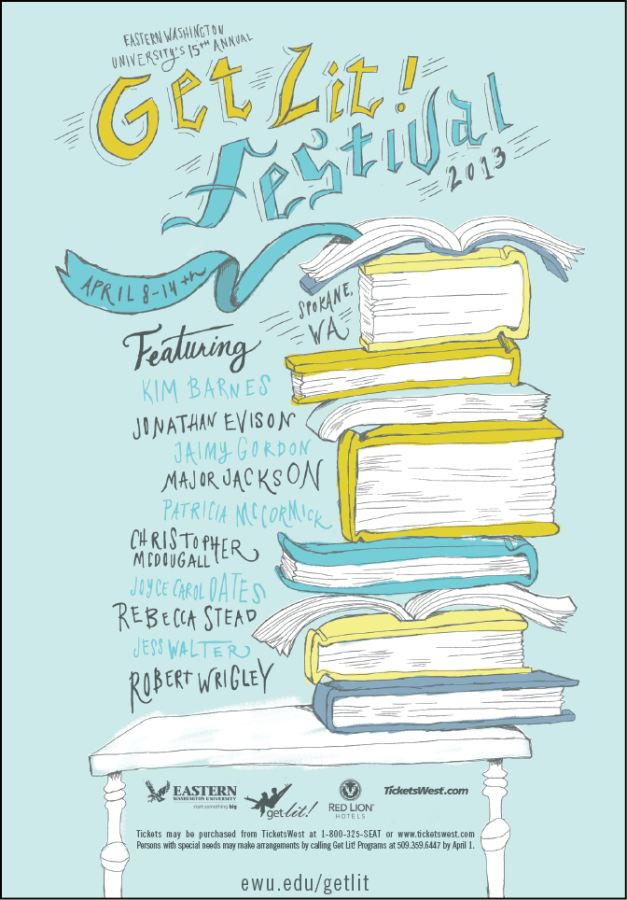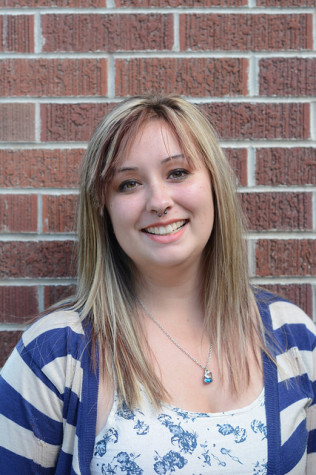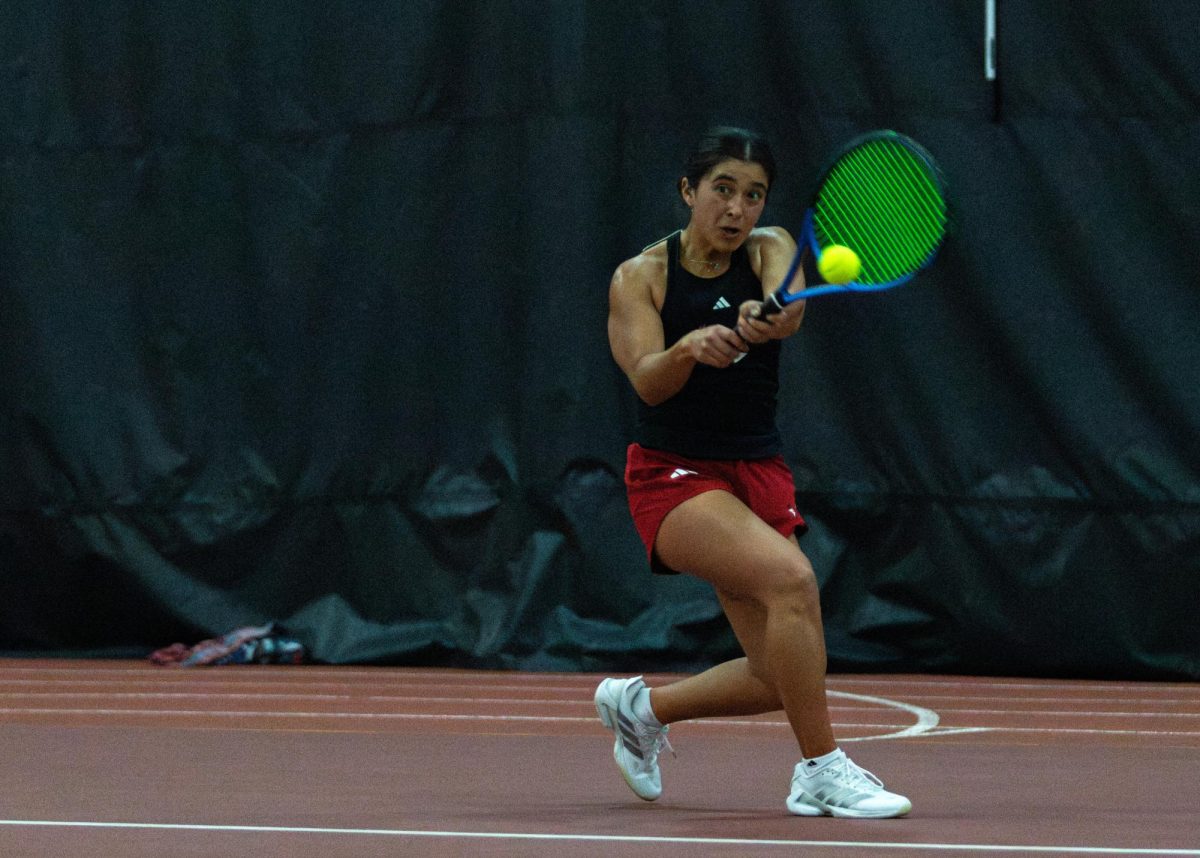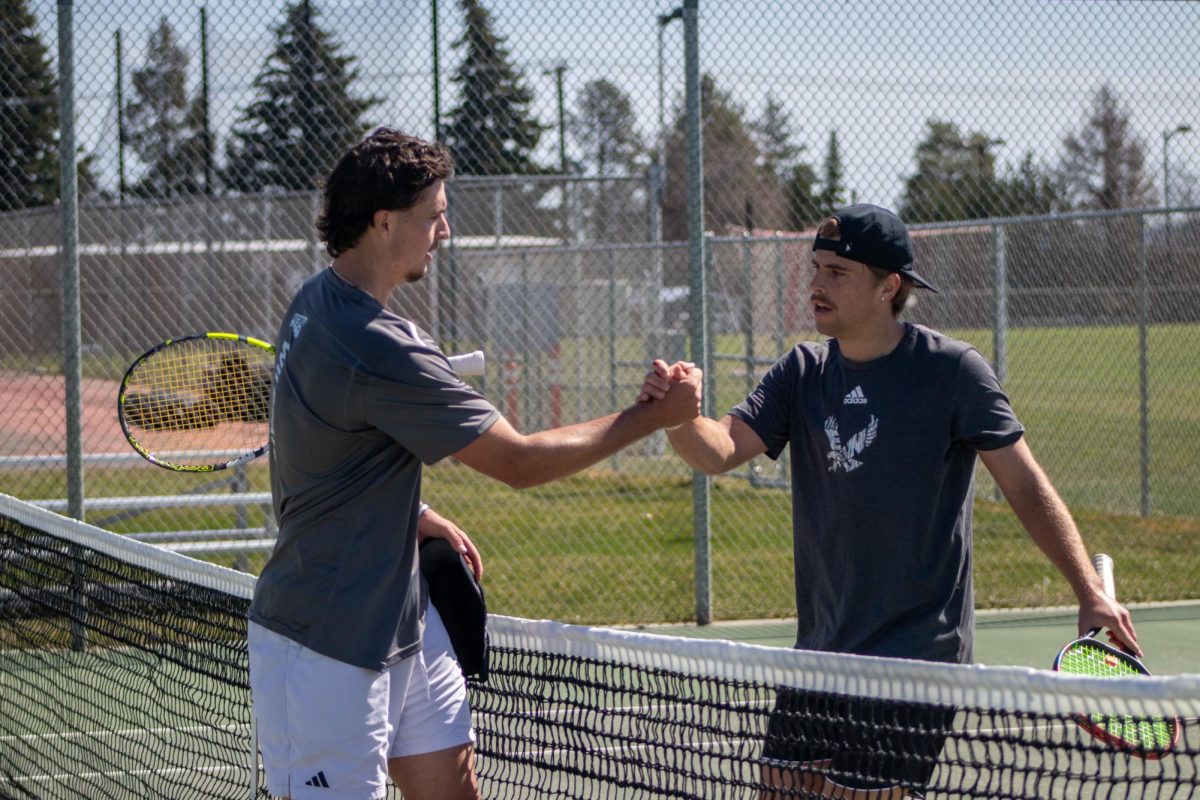Literature festival celebrates 15-year anniversary
Get Lit features events in Cheney and Spokane
March 16, 2013
Editor’s note: There were errors that went into print. According to Melissa Huggins, she is actually the Director of Get Lit Programs. Her title was changed a couple of years ago. Also the basketball game from 2012 did not actually Heather Bowman and Sherman Alexie play. They were in the original lineup, and then both had to cancel because of other commitments. Also not all of the players were authors. Sara Goff and Jonathan Johnson’s names were also misspelled in print.
Downing a glass of whiskey, warming the throat with a smooth burn, and eating a homemade pie, sugary and gooey, while listening to authors read aloud their work is one of the events continuing at this year’s Get Lit festival.
The festival is from April 8 to the 14 and takes place on Eastern’s campus and in Spokane.
The festival is an opportunity for students, as well as the general public, to get help with their writing and see authors present their work and interact with the audience, according to Melissa Huggins, Director of Get Lit Programs.
Huggins said that she attended one of the events where Kurt Vonnegut presented. Living in Spokane for most of her life, she said, made it difficult for her not to know about Get Lit.
The pie and whiskey event is one of the events that help make the festival unique and different from other festivals, according to Huggins.

“When people hear, ‘Literary festival,’ they think they’re just going to sit and listen to the authors read. The audience doesn’t want it to always be a straight lecture, we like to mix it up,” she said.
In 2012, one of the events included a basketball game, called HooPalousa, where some of the players were authors, including Shann Ray, David Pendergraft and Jess Walter.
“It was a riot,” Huggins said.
According to the Get Lit website, the event that spawned the festival was a book reading that only garnered the attention of three homeless people who wanted to get out of the rain and two open mic readers that evolved into a weekend book reading event in 1998.
Get Lit was started by an old organization of EWU known as the University Press.
One of its former members, Christopher Howell, was part of the two-person organization that started Get Lit, according to Huggins.
According to Karen Maner, the co-coordinator of programs for Get Lit, the events are created with community input and marketing assistants to make sure that the events appeal to a broad range of people.
Authors that attend the event are suggested by the attendees of the festival, according to Huggins.
“Everyone always suggests Sherman Alexie,” she said.
This year, events include a presentation by John Marzluff, who will explain how crows are similar to humans at Mobius Science Center, a first-time venue for the festival, according to Huggins.
“He studies all kinds of birds, but I guess crows are his life’s work,” she said.
Events happening on the EWU campus include a special performance of “Ode” by the theater department that includes a question-and-answer session with Sara Goff, director and assistant professor, and Jonathan Johnson, writer and associate professor at Eastern.
The events that take place on campus, according to Huggins, are due to whether or not the topic is suitable for certain academic departments.
“We go and ask the departments what they want to see. … We have Kate Zambreno, who is a good fit for the women’s studies program here, so she will be presenting during a class, but it’s open to the public,” she said.
For a literary festival, Huggins said she wants a blending of the academics and the general public making academics appeal to the average Spokanite.
Maner said she attends the workshops that are offered to the public.
She said it helps her and her own writing.
Maner has also talked to people who attended the workshops, which range from students to those who consider themselves writers and those who are first-timers just starting to get into the craft, she said.
“It’s nice because they get to choose an author that does the same thing as them,” said Maner. “They can get help and learn not only how to write but how to get resources [for] the type of writing they’re involved with.”








